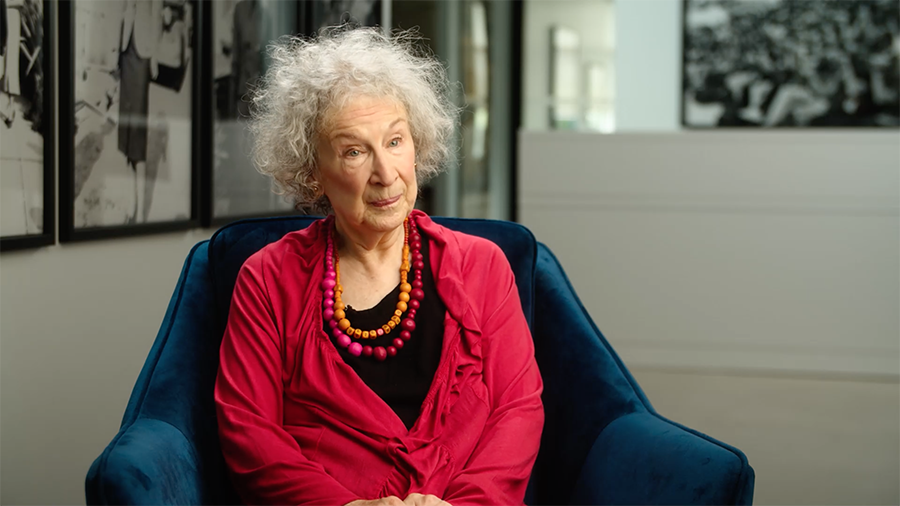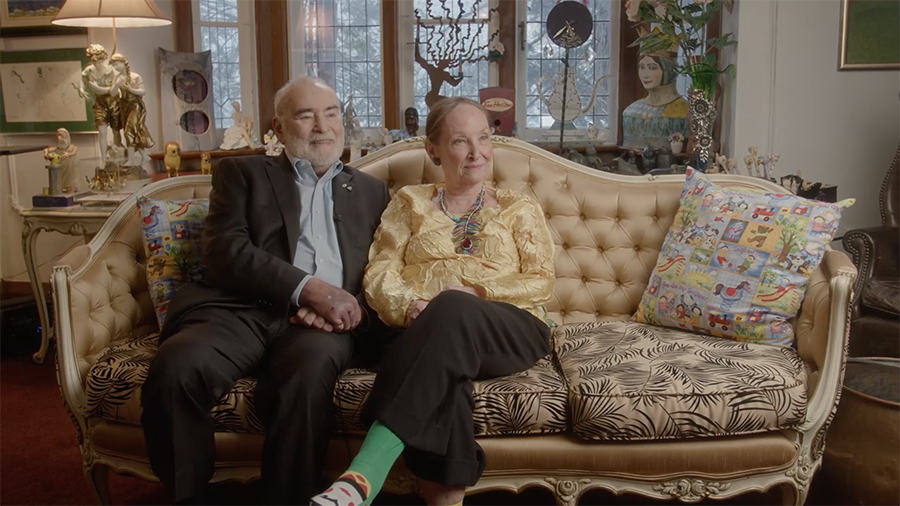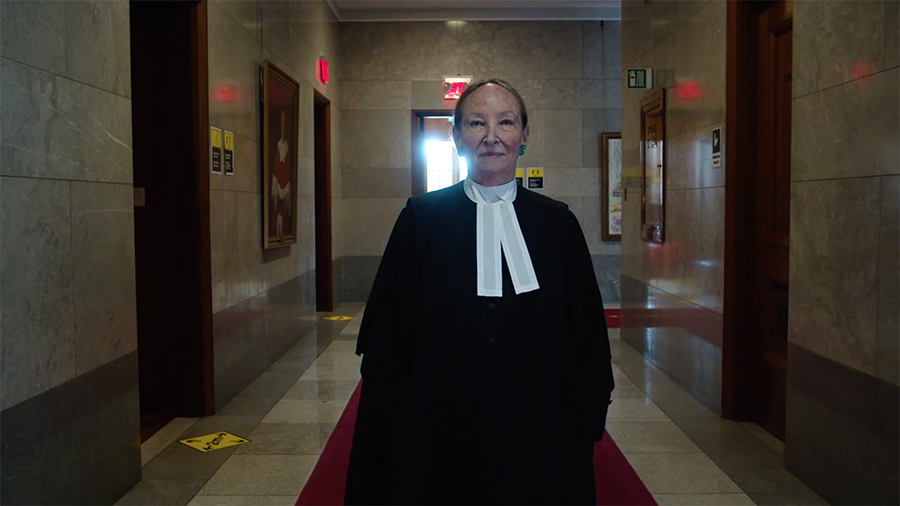‘Without Precedent’ Documentary Spotlights Madam Justice Rosalie Abella, Canada’s Answer to RBG

Rosalie Abella on the steps of the Supreme Court of Canada. The new documentary about her life and work, 'Without Precedent,' is currently screening and streaming at the Hot Docs Festival. Photo: Dave Chan
As Without Precedent: The Supreme Life of Rosalie Abella opens in select theatres Canada-wide on Friday (June 9), we revisit our deep dive into the documentary about the trailblazing former Canadian Supreme Court Justice from its Hot Docs première in May.
“If I have a Canadian sister, her name is Rosie Abella,” the late U.S. Supreme Court Justice Ruth Bader Ginsburg once said of Rosalie Silberman Abella, former justice of the Supreme Court of Canada, the country’s highest court.
Abella is the subject of Canadian filmmaker Barry Avrich’s documentary Without Precedent: The Supreme Life of Rosalie Abella, which premièred at the Hot Docs Festival this week (it screens again May 5, and streams May 5-9 through Hot Docs digitally); a film that may well do for Abella what RBG did for Ginsberg — introduce the legal icon to appreciative new generations.
The title — a double entendre of the legal term — refers to Justice Abella’s many (many!) firsts: she became the youngest judge in Canadian history when appointed, at age 29, to Ontario Family Court in 1976 (it was a judicial boys’ club and she was an expectant mother at the time, and that set her on her path; the first former refugee in Canada to become a judge; and also Canada’s first female Jewish judge on the Supreme Court, nominated to the position in 2004 by then prime minister Paul Martin.
Avrich grew interested in Abella as a subject after Prosecuting Evil, a previous documentary about the last surviving Nuremberg war crimes prosecutor, Ben Ferencz (who died only last month, at the age of 103), and his lifelong crusade for restitution for Jewish victims of the Holocaust, in which the justice appeared.
The child of Holocaust survivors, Abella was born in 1946 in Stuttgart, Germany, in a displaced person’s camp. Her family came to Canada in 1950 as refugees. The perspective gained from her personal history had a hand in shaping her legal legacy; in recent years she often gave speeches that intertwined that personal story with human rights, morality and constitutional law.
But the depth of that personal story has been less readily accessible, until now.
Without Precedent chronicles Abella’s remarkable career advocating for the rights of women, people with disabilities and visible minorities, along with the expected observations about compassion and social policy from talking heads like New Yorker journalist Adam Gopnik, Margaret Atwood and several former Canadian prime ministers. But these commingle with home movie footage and Avrich’s bird’s eye view on her final days as a Supreme Court justice.

Much of it was filmed during the COVID-19 pandemic in the lead-up to Abella’s retirement in 2021 (at the time she stepped down, she was the longest-serving member). Where the portrait of the former justice shines, however, is in its overall intimate tone: the camera takes us inside her colourfully decorated home and the rich professional and family life she and husband Irving Abella created together with sons Jacob and Zachary (both lawyers, naturally). It’s also a love story about the mutual support and encouragement Rosalie and Irving, an eminent Canadian historian who died last summer, each gave the other, beginning when they first met as University of Toronto students.

Their home life was as equitable as that for which she strove at work. Abella’s 1984 Royal Commission research into workplace equality, for example, resulted in the 1986 Employment Equity Act — federal legislation requiring employer acknowledgement and accommodation of difference, designed to address the systemic barriers and workplace inequality experienced by women, visible minorities, persons with disabilities and Indigenous peoples.
Abella coined the neutral term “employment equity” in her recommendations, and elements of the report were later adopted by jurisdictions around the globe. Thanks to her theory of equality, a Los Angeles Times profile called her “the most important Supreme Court justice you’ve never heard of”; Yale professor Hongju Koh likewise told the Globe and Mail that, based on her legal rulings, Abella is the most famous Supreme Court justice in the world.
There’s also the landmark 1998 ruling, while on the appellate court, that struck down tax law provisions that prevented same-sex spouses from receiving pension benefits.
“I see justice as the aspirational application of the law to life,” Abella declares at one point in the film.

Throughout her time on the bench, Abella’s progressive and compassionate rulings made headlines on both sides of debate. Not everyone was a fan. The documentary includes footage of the resistance and protests at her various appointments to the Ontario Court of Appeal and later the Supreme Court — criticism of legal rulings and being an “activist judge” persisted until her retirement. Abella’s outgoing message reiterated her belief that judges should reflect the people they serve.
U.S. Supreme Court Justice Sonia Sotomayor was on hand for the Hot Docs world première in Toronto, joining Avrich and Abella on stage Monday for the Q&A. “Why have Rosie’s decisions been so closely monitored?” Sotomayor asked aloud. “Because she forces each of us to examine our conscience. Where else does justice come from? From our conscience.”
For her work as a champion of human rights and social justice, Abella will receive a star on Canada’s Walk of Fame later this year, joining such past humanitarian inductees as Roméo Dallaire and Viola Desmond.
It’s a fitting tribute for someone who helped shape the nation we know today.
Without Precedent: The Supreme Life of Rosalie Abella screens in cinema on Friday May 5 at the Hot Docs Festival and streams online in the rest of Canada from May 5 to 9.
RELATED: